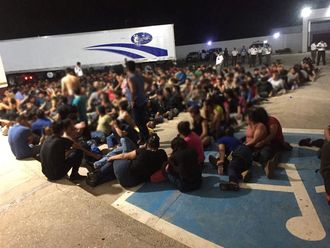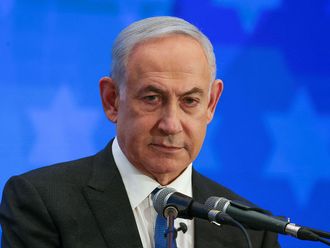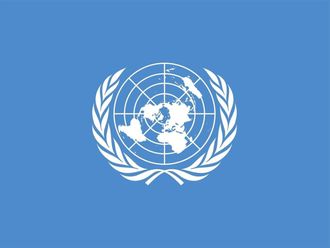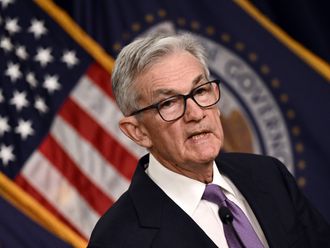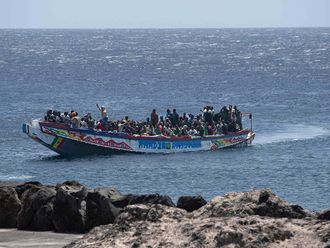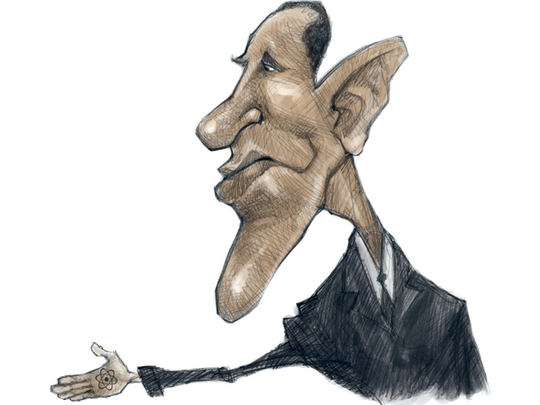
Whatever the immediate practical outcome, the nuclear summit in Washington on Monday and Tuesday has given an undoubted boost to the standing of the US — and of President Barack Obama himself.
The implicit message of the summit was that Obama was the world's leading statesman and that the US was the world's only superpower. Banished was talk of America's decline or the emergence of a multi-polar world. Banished, too, was any suggestion that Obama was weak or ineffectual — accusations which had circulated widely before the successful recent passage of his much-needed health care reform bill. He was now the most powerful man on the planet and its leading problem-solver.
The conference was seen as a further step in the direction of Obama's lofty vision — outlined a year ago in a major speech at Prague — of a world free of nuclear weapons.
Before the meeting opened, the US revealed a significant shift in its nuclear strategy. Published on Monday, the Nuclear Posture Review states that "The United States will not use or threaten to use nuclear weapons against non-nuclear weapons states that are party to the Nuclear Non-Proliferation Treaty (NPT) and in compliance with their nuclear non-proliferation obligations." The ‘fundamental role' of America's nuclear weapons, the review says, is to deter a nuclear attack — and not to be used for aggressive purpose.
Even a chemical or biological attack against the US or its allies will not trigger a nuclear response but only, in the words of Secretary of Defence Robert Gates, a ‘devastating conventional military response'. The US has also pledged not to develop a new generation of nuclear warheads.
By thus setting an example of nuclear restraint, the US is hoping to persuade non-nuclear states to give up the idea of acquiring nuclear weapons. The only trouble is that, in explaining the new strategy, Obama and Gates singled out some notable exceptions to the new doctrine. "We essentially carve out states like Iran and North Korea that are not in compliance with NPT," Gates said. "If you're not going to play by the rules, if you're going to be a proliferator, then all options are on the table in terms of how we deal with you."
Iran has responded indignantly to these threats. Accusing the US of ‘nuclear terrorism', it has said it would make a formal complaint against the US to the United Nations.
Officially, the main item of business of the Washington conference was a four-year plan to control and lock down the more than 1,500 tons of enriched uranium and plutonium scattered at more than 40 sites around the world — enough to manufacture over 100,000 nuclear bombs and destroy human civilisation several times over. The main challenge, Obama declared, was to keep these dangerous nuclear materials out of the hands of terrorists.
Notable absentee
Israel's Prime Minister Benjamin Netanyahu chose not to attend the summit. His personal antipathy for Obama — fully reciprocated by the latter — may have played a part in his decision to stay away.
Above all, Netanyahu must have wished to avoid any international pressure regarding Israel's large nuclear arsenal. Israel has refused to sign the NPT, or submit to inspections by the International Atomic Energy Agency. It is determined to remain the region's only nuclear power — and has used force in the past, notably against Iraq, to retain this monopoly. It has repeatedly threatened to attack Iran and is totally hostile to the idea, floated by Egypt and other Arab states, of a Middle East free of nuclear weapons.
The Israelis are all too aware that, in Obama's mind, Iran's nuclear activities and Middle East peace are intimately connected. The US president will undoubtedly expect a reward from Israel for his pressure on Iran. If Iran can be persuaded to halt its nuclear programme — which Israel never misses an opportunity to depict with great drama as an ‘existential threat' to itself — then Israel will have to respond by halting its colony expansion on the West Bank and in occupied east Jerusalem. That is what Obama clearly anticipates.
Particularly alarming to Israel are persistent reports out of Washington that, if Israeli-Palestinian talks fail to start, Obama will announce — and seek to impose — his own peace plan. This is an outcome Israel wishes to avoid at all costs.
Obama's vision of a nuclear-free world is undoubtedly a noble one. But there are flaws in the implementation. Military threats against Iran such as Gates and Obama himself have already made — and which Israeli leaders make routinely — are not likely to impress an increasingly defiant Iran. On the contrary, far from causing Iran to give up its nuclear ambitions, they are more likely to spur it to develop nuclear weapons with all possible speed, as a deterrent against attack. Rather than being threatened and excluded, Iran should be brought into the security architecture of the Arab world, as Arab League Secretary-General Amr Mousa has often recommended.
The Washington summit will not have cleared Obama's many headaches, but diplomacy is a step-by-step process requiring patience and determination. Obama has demonstrated that he has both.
Patrick Seale is a commentator and author of several books on Middle East affairs.


